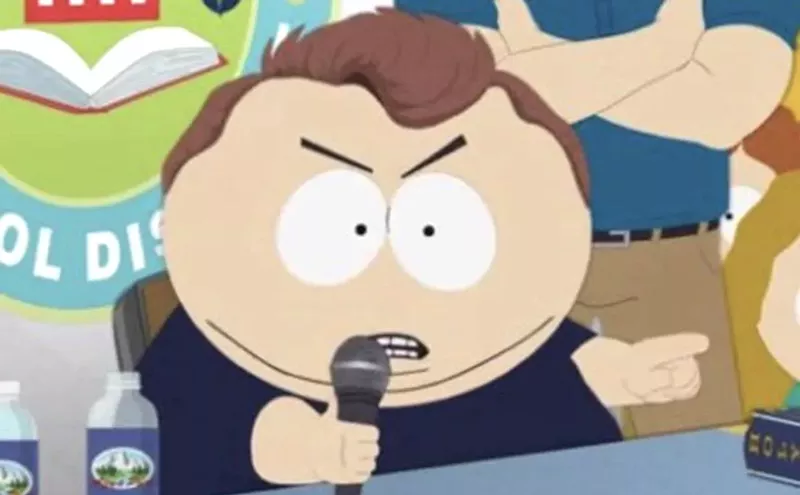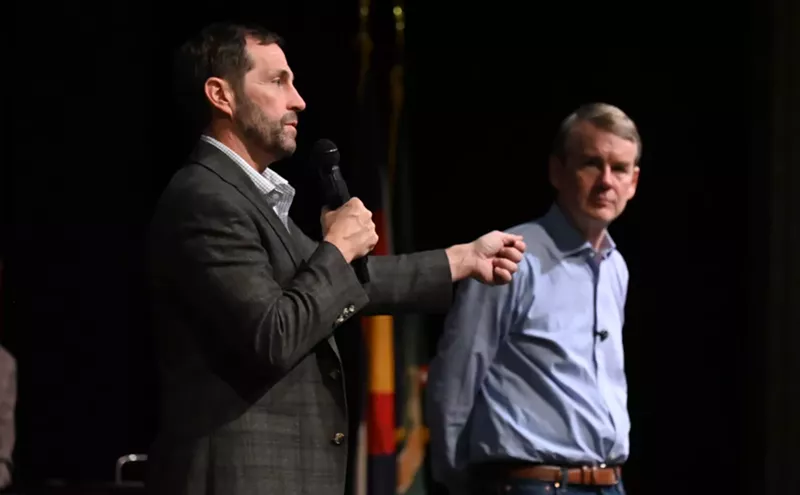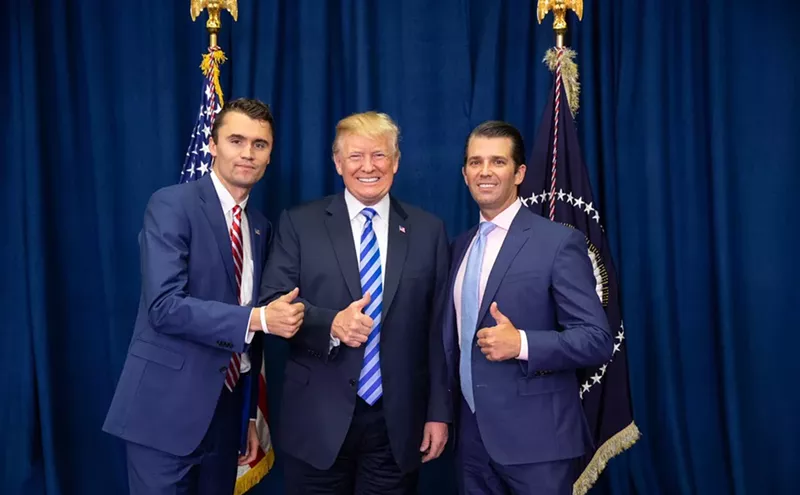"I decided a while back to take video games seriously," Thomas says, "because they look like the center of the popular-culture revolution, as far as I can tell. Games are what early rock and roll was -- this force that everybody thought was going away but didn't. So I thought, I'm going to stick with this and focus."
His diligence has produced some tangible results. In addition to his duties at the Post, he teaches a pair of courses at the University of Colorado at Denver -- "The History of Digital Media" and "Critical Video-Game Theory" -- that he designed with the offspring of the first joystick generation in mind. In addition, he co-founded the International Game Journalists Association, a group whose mission, as stated on its website, www.igja.org, is "to centralize some of the discussion among the people that cover the art, science and business of video games." At present, the IGJA, which launched in early 2004, has more than 140 members, ranging from obscure scribes to reporters who are actually being paid a living wage to write about video games and the multibillion-dollar industry that's sprung up around them.
Among those in the latter category is Dean Takahashi of the San Jose Mercury News, an established star in this expanding field. In 1997, Takahashi wrote the first video-game review published by the Wall Street Journal -- he analyzed The Sims -- and five years later, he published Opening the Xbox: Inside Microsoft's Plan to Unleash an Entertainment Revolution. He sees the IGJA as having "a noble purpose" and describes Thomas as "a person who's trying to bridge the community of game reviewers and game journalists, and the academic world as well. I think he's really one of the few people who sort of steps back and thinks about things from a broader or more theoretical viewpoint."
Arguably the most ambitious project undertaken by the IGJA to date is the creation of a style guide intended to help maintain consistency in video-game writing -- something that Thomas says is sorely lacking. "If Joe Reporter at a daily newspaper gets told by his desk editor, 'Write a story about video games,' there's a good chance he has no idea what any of this stuff means," he notes. "He doesn't know if PlayStation is one word or two words, or how to capitalize it -- and it's hard to look that up, since you might get a press release that has it all in caps. So we want to standardize the terms and reference them correctly."
Granted, insiders often disagree about even the most basic vocabulary. In the United States, for instance, "video game" is generally written as two separate words, but in Europe, Thomas says, "videogame" is the accepted designation. He prefers the latter. In his view, "one word is better, because it's a new thing. After all, video and games are two different things -- and it deserves a word that Googles well." While no consensus has been reached on this matter, Thomas feels fairly confident that he'll "win the argument."
The person doing much of the heavy lifting in regard to the style guide -- a work in progress that can be accessed at the IGJA site -- is Washington, D.C.-based Kyle Orland. A recent University of Maryland graduate, Orland is currently working in the communications department at National Public Radio. But he's become well known in the game-journalism community for the Video Game Ombudsman, a website at http://vgombud.blogspot.com dedicated to the premise that "any sufficiently developed artistic medium requires an equally developed set of critical and journalistic standards to help give it meaning."
Thus far, Orland says, most video-game writing fails to meet this test. As he puts it, "The journalism I learned in school didn't bear a lot of resemblance to the video-game journalism I see." He estimates that only about 20 percent of current video-game reviews are of interest from a pure writing standpoint, and just 5 percent of news reports "go beyond things that you'd find in a press release to look at the heart of the matter: the culture, the things that make video games important." Investigations into the business of gaming are few and far between because, he says, manufacturers "control the information that comes out about their product. But I still think it's possible to find out more than just what the companies spoon-feed us."
A few mainstream journalists have risen to this challenge. Thomas points to a 2002 article by Los Angeles Times staffer Alex Pham that revealed the ethically murky world of video-game junkets, in which popular gaming writers are regularly inundated with exotic trips and loads of freebies in a practice nicknamed "Playola." The Mercury News's Takahashi earned praise as well for "Wondering Where to Draw Line on Electronic Killing," an examination of video-game morality that the News published this past July 18. In the piece, Takahashi wrote about how he had sworn off violent games during the early '90s following the death of his brother, Tracy, who was gunned down by gang members who mistook his home for that of a rival. Today, however, he can draw an emotional distinction between this real-life murder and fictional gunplay -- most of the time, anyway. In Takahashi's words, acting as "the hero who saves people, like my brother, from the bad guys," has become "part of my particular code of gaming ethics."
Readers (and editors) of a certain age may not fully comprehend the nuances of Takahashi's essay. After all, Takahashi, who's forty, and Thomas, 39, are on the far edges of the gaming demographic. Yet Orland sees time as an ally of better video-game journalism.
"If you didn't grow up with video games, it's hard to get into this world," he says. "But in the next ten or twenty years, more and more of the opinion-makers will have grown up with them and will understand that they're not just horrible things that make children violent. They'll want articles that don't just look at the technical things, but that describe things in an interesting and compelling way that they'll want to read even if they haven't already played the game."
As the video-game-savvy readership grows, Takahashi is hopeful that opportunities to specialize in gaming will, too. In comparison with most daily newspapers, the Mercury News is extremely receptive to such coverage, which is generally split between Takahashi and colleague Mike Antonucci. Nevertheless, Takahashi guesses that only about 20 percent of his duties revolve around video games. "In some ways, we're a little disappointed that things haven't moved as quickly as we thought they might," he concedes. "Video games are mainstream now, but there's still a certain attitude you run into -- like, 'How many stories do we actually need to do on the game industry? Can't we just do reviews and leave it at that? Are gaming conferences worth attending?' And, in my case, 'Will I ever have a chance to write about this stuff full-time?'" In his view, "progress is being made" toward silencing doubters once and for all, "but we're not there yet."
By treating video-game journalism as a worthy pursuit rather than the principal domain of arrested adolescents and geeky fanboys, Thomas hopes the IGJA will help smooth the way for such a shift -- and he's confident that a new and exciting approach to writing will distinguish this new era.
"People ask, 'Where's the Lester Bangs of video-game criticism?'" he says. "And I'm starting to think that might be the wrong question. Video games are a different kind of medium, and they need to be covered in a different way. We can't just borrow all of its idiom from film and rock criticism. But it should aspire to the same kind of quality that critics like Pauline Kael and Robert Christgau established.
"I see the association as being an expression of game journalism maturing," he adds. "We're trying to do something grown-up with it."












